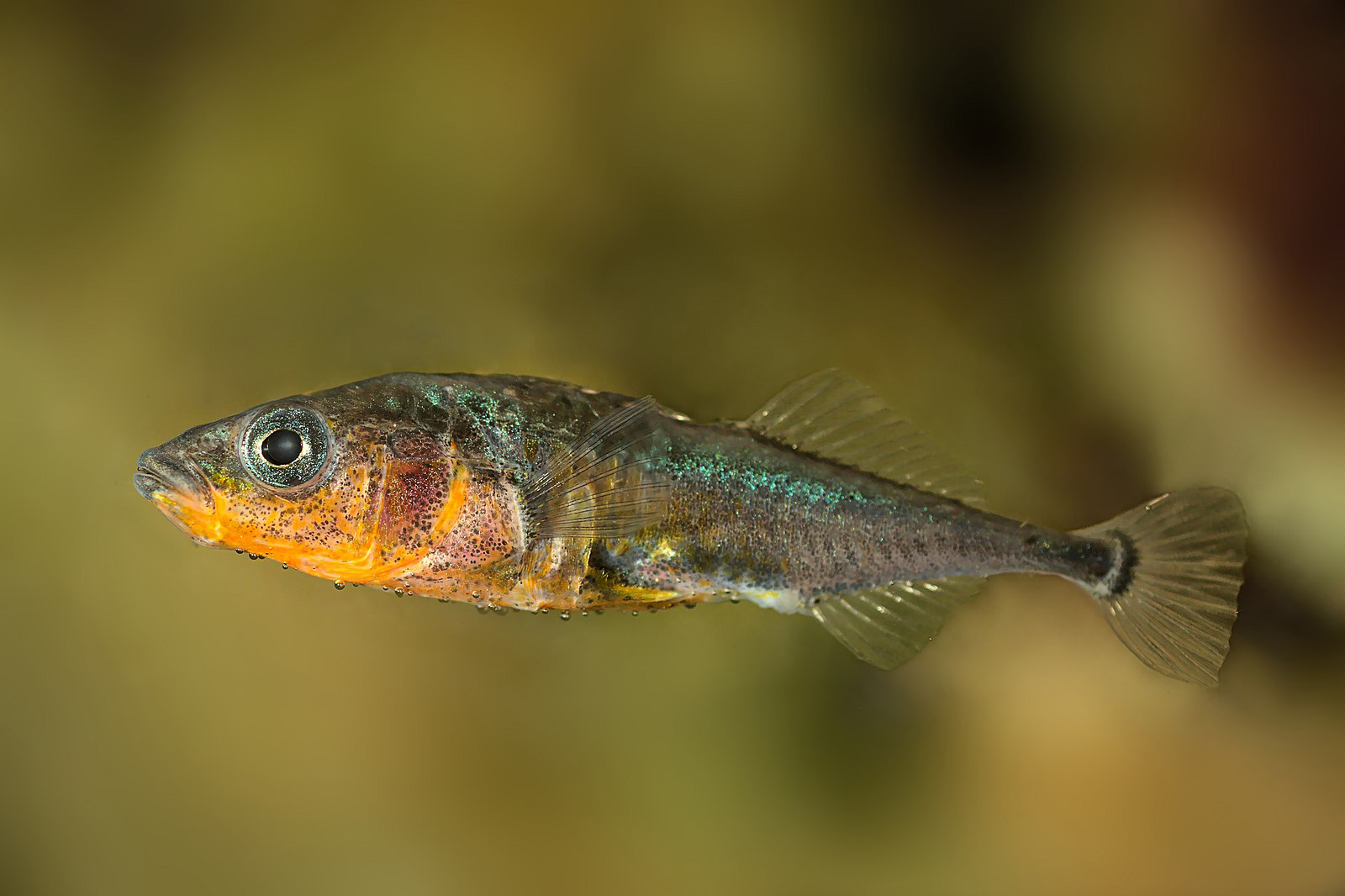Can parental care influence sperm-mediated effects in threespine sticklebacks?
Animals can influence their offspring through multiple signals starting from fertilization to after birth. However, researchers have seldom looked at how these different signals work together to influence behavior. In a new study, postdoctoral researcher Jennifer Hellmann in the Bell lab investigated how changes in sperm and paternal care influence the offspring of threespine sticklebacks.

Epigenetic changes—reversible modifications in genes that are caused due to the environment—in the sperm have been shown to influence future generations in response to predators, pathogens, environmental toxins, and warming temperatures.
“We are increasingly realizing that dads can transmit cues, via sperm or through parental care,” said Hellmann, now a faculty member at the University of Dayton. “Previous students in the lab have shown that the stickleback fathers alter the amount of care they provide in response to predator risk, but it was unclear whether the changes that are induced by sperm-mediated effects can alter the ways in which parental care influences the offspring.”
In the presence of predators, male sticklebacks alter their parental care and produce offspring that are more timid, potentially leading to higher survival against predators. The reason might be because the offspring learn antipredator skills from their fathers early in life.
To understand how parental care can influence the epigenetic effects, the researchers used two groups of fathers: those that were exposed to a predator before they fertilized the eggs and those that were not. “We used a population of sticklebacks from California in which we had shown that parental exposure to predators causes a number of changes in the offspring genes,” Hellmann said. “For two weeks we used a clay model of the predator and swirled it around the tank to mimic predation risk.”
The offspring from the two groups were then raised with or without parental care. The researchers observed that the offspring of predator-exposed fathers were less active and also seemed to be less stressed when they are exposed to a simulated predator attack. Interestingly, the effect was present whether or not their fathers provided care. “We found that parental care did not seem to affect the sperm-mediated effects, at least for the traits that we measured,” Hellmann said.
“The results are definitely not what we expected,” said Alison Bell (GNDP leader), a professor of evolution, ecology, and behavior. “It is clear that parental effects can depend on the population i.e., where the sticklebacks are from, when fathers experience risk, and what traits are being measured.”
The researchers tested the behavior and stress responses of the offspring, but it is possible that looking at gene expression might also be informative. “We know that parental care is important. We tested the offspring when they were juveniles, but perhaps if we had tested them when they were younger, right after they received parental care, we would have seen different effects,” Hellmann said.
“We are currently studying two ecotypes of stickleback—they are the same species but they differ in various respects, such as parental care. One ecotype provides parental care, like the regular stickleback, and the other does not. We are trying to understand the genetic basis for this difference and how the offspring have evolved to the loss of care,” Bell said.
The paper “The interplay between sperm-mediated and care-mediated paternal effects in threespine sticklebacks” was published in Animal Behaviour and can be found at https://doi.org/10.1016/j.anbehav.2021.07.005.
The work was funded by the National Institutes of Health, the NIH National Research Service Award, and the American Genetic Association Evolutionary, Ecological, or Conservation Genomics Research Award.
